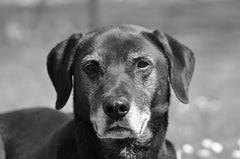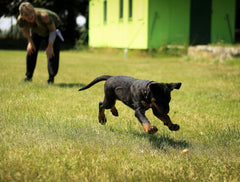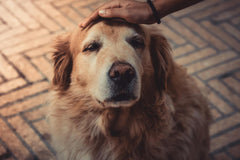
Unfortunately, there are many dogs who become obese. They might eat too much, be inactive, or have other health issues that contribute to their obesity. Many of the dogs that are obese will pass away sooner than they would have if they were at a healthy weight.
There are many different causes of obesity in animals. If you want to prevent obesity in your dog and increase their lifespan, there are some great tips that will allow you to do this.
Serving The Appropriate Amount and Type of Food

Canine weight loss is important for obese dogs. If you want to prevent obesity in your dog, you should make sure to serve them the appropriate amount and type of food. There are so many different types of food formulas out there.
Picking the right type depends on your dog’s activity level, breed, weight, and age. You can track the number of calories your dog is getting since every type of dog food will have this on the label. You should be picking out the food that best fits the needs of your dog with the fewest calories.
With this being said, puppies need more calories than an adult or senior dog. Also, if your dog is more active, they can take in more calories without gaining too much weight. You should, however, follow the guidelines for feeding your dog. These should be on the label of the dog food that you choose.
If you aren’t sure what to feed your dog or how much to feed them, talk to your veterinarian. They can help with this and can also recommended food options that will work best for your dog.
Feeding Your Dog More Often

There are many dogs that eat a lot of food at one time and this is the only time they eat each day. This can become a problem and can actually make many dogs obese. If you want to help prevent obesity in your dog, you should feed them more often.
You can feed your dog 2 to 3 times each day in smaller portions. This helps their metabolism to keep working which also helps them to burn off additional calories.
No People Food

Many dog owners will feed their dog people food. The problem with this is you aren’t tracking their calories and they might be eating far too much. While it can be convenient to give your dog table scraps, it can cause them to become obese. There are many dog treats that you can give your dog that they will enjoy just as much.
Walking or Playing with Your Dog

It is important that you are walking or playing with your dog at least once each day. This will make all the difference with their weight. It will help them to burn off calories, keep their metabolism going, and help them to lose weight if needed, as well.
Veterinarian Visits

You should also make sure you are taking your dog to the veterinarian regularly. They will weigh your dog and let you know if your dog needs to lose weight. They can also let you know if your dog is in a healthy weight range. These are some of the best tips for helping to keep your dog at a healthy weight. If you use these tips, you can help your dog to be more active and extend their life expectancy, as well.
Just like in humans, canine obesity management is important in our furry friends as well, even though they may not realize it themselves. That’s why it is up to us, their owners, to help them prevent obesity and any other health complications that may come along with it. There are several steps that dog owners can take to prevent obesity in their dogs. This includes monitoring their weight, being mindful of their nutritional intake, and of course, having them participate in regular exercise.
Know How Much Your Dog Should Weigh

Some dog owners may be unaware of their pet's ideal weight, which is something all pet owners should be aware of. Many owners just take their pet to the veterinarian and let them determine whether their pet’s weight is okay or not. Their ideal weight isn't just based on what the scale says.
Vets also use physical markers to judge whether the dog's weight is healthy or not. Features such as whether they can feel the rib cage or see it are part of this assessment. Another feature that is taken into account is how defined the dog's waist area is.
These are all things that dog owners can keep tabs on themselves in between vet appointments to have an idea about how their dog's weight is doing.
Be Aware of What/How Much Your Dog is Eating

We all like to count our dogs as a part of the family and want to include them in the things that we do, but feeding them table scraps or any “people food” could be a big contributing factor to weight gain. Avoiding sharing table food with them will help avoid unnecessary calorie intake. Often it's not a matter of changing the food that they are eating, but more so the amount that they eat, unless their vet says otherwise for any particular reason. Feeding them scheduled, well-portioned meals can help you, their owner, have better control of their intake from day to day.
A lot of dogs would eat all day long if their owners would let them. Avoiding auto feeders that just continue to dispense food while you are away, give them full reign over their intake amount. Instead, a scoop that can measure their portions that you can use at each scheduled meal will help to better control their food intake at each meal.
Take Your Dog Out for Regular Exercise

Going on regular walks with your dog is a win-win since you will both be benefiting from the regular physical activity together. Not to mention spending some good quality time together in the process. Daily strolls around the block are great for maintaining weight and good health, but if your dog is struggling with their weight or maybe you've noticed them gain a couple of pounds recently, they may need more than just leisurely walks. You may need to up the pace to get those calories burning. An average pace of about 15 minutes per mile should get their heart rate elevated adequately.
Conclusion
Our dogs don’t know what it means for their health when they gain weight, or what they should do about it when it happens. That’s why it is up to their loving owners to help guide them down the right path for their health. Owners must know what their dog's health goals are such as their ideal weight and how to keep tabs on this between pet visits. Knowing what to do to prevent weight gain is just as important as knowing what to do to help them lose weight. Just like with humans, watching their portion sizes and increasing physical activity should usually do the trick.




